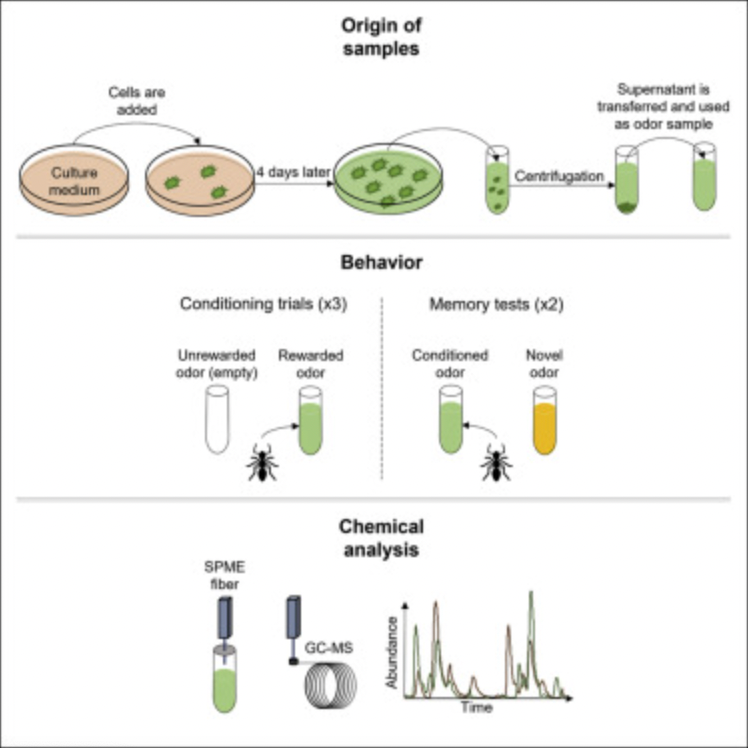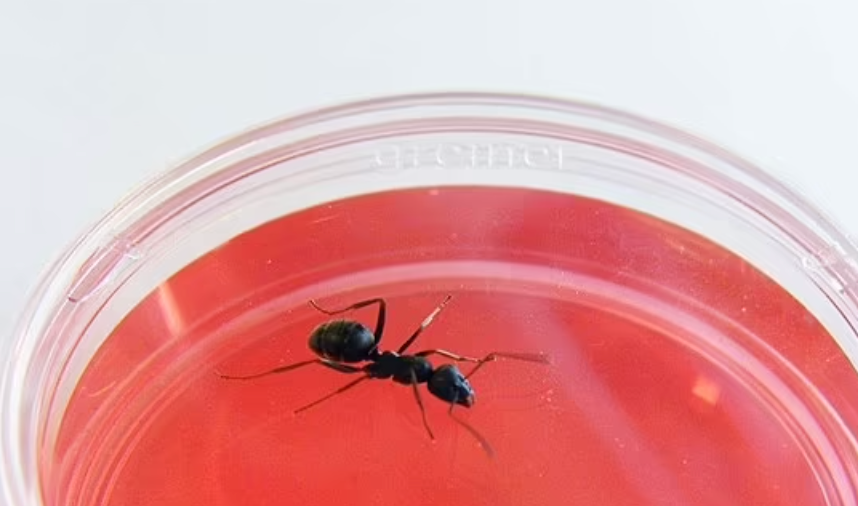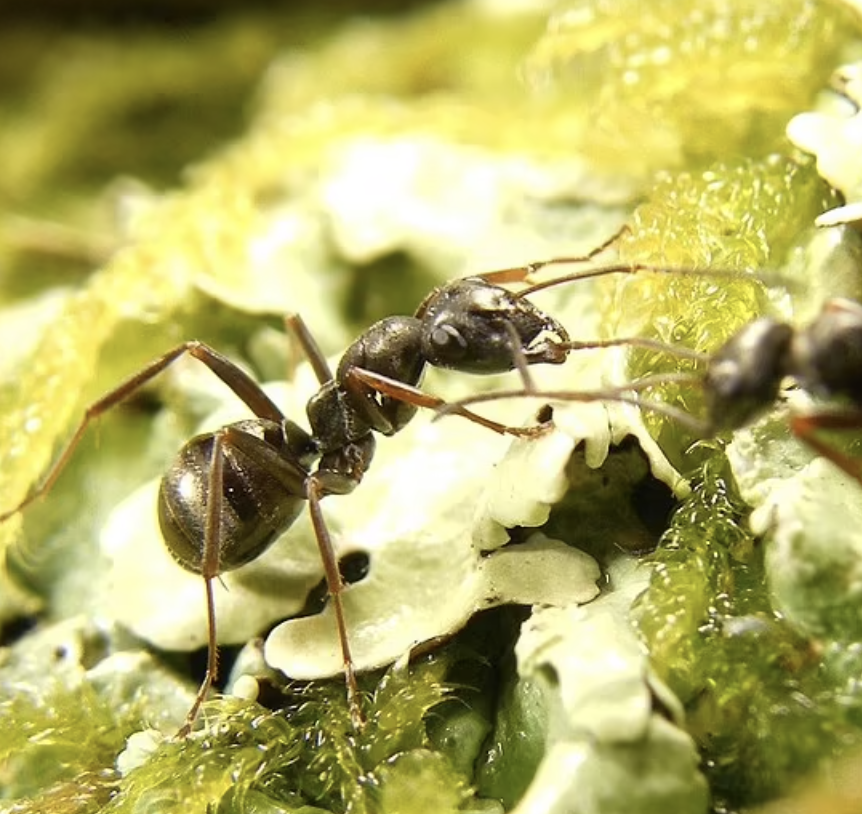

Share
10th March 2022
11:44am GMT

 Via iScience[/caption]
Scientists took 36 ants and exposed them to cancerous human cells, which was then associated with a reward of sugar solution. Next, the ants were provided with two smell tests, the first was healthy cells and the second was cancerous.
Should the ants pick the cancer cells, scientists moved them onto the final smell test.
They found that "ants discriminate between cancerous and healthy cells and between two cancerous lines."
But before being used on mass, CNRS says the "efficacy of this method must now be assessed using clinical trials on a human being."
[caption id="attachment_322335" align="alignnone" width="858"]
Via iScience[/caption]
Scientists took 36 ants and exposed them to cancerous human cells, which was then associated with a reward of sugar solution. Next, the ants were provided with two smell tests, the first was healthy cells and the second was cancerous.
Should the ants pick the cancer cells, scientists moved them onto the final smell test.
They found that "ants discriminate between cancerous and healthy cells and between two cancerous lines."
But before being used on mass, CNRS says the "efficacy of this method must now be assessed using clinical trials on a human being."
[caption id="attachment_322335" align="alignnone" width="858"] Via iScience[/caption]
"But this first study shows that ants have high potential, are capable of learning very quickly, at lower cost, and are efficient."
The researchers believe that one day, Formica fusca could be better at sniffing out cancer cells than dogs.
"Dogs' noses are well suited for medical diagnosis and used for the detection of cancer-specific [volatile organic compounds]," the researchers explained. Training them can take up to a year, but insects "can be easily reared in controlled conditions."
[caption id="attachment_322342" align="alignnone" width="862"]
Via iScience[/caption]
"But this first study shows that ants have high potential, are capable of learning very quickly, at lower cost, and are efficient."
The researchers believe that one day, Formica fusca could be better at sniffing out cancer cells than dogs.
"Dogs' noses are well suited for medical diagnosis and used for the detection of cancer-specific [volatile organic compounds]," the researchers explained. Training them can take up to a year, but insects "can be easily reared in controlled conditions."
[caption id="attachment_322342" align="alignnone" width="862"] Via iScience[/caption]
The scientists continued: "They are inexpensive, they have a very well-developed olfactory system and hundreds of individuals can be conditioned with very few trials.
"Ants, therefore, represent a fast, efficient, inexpensive, and highly discriminant detection tool for detection of cancer cell volatiles.
"Our approach could potentially be adapted to a range of other complex odor detection tasks including the detection of narcotics, explosives, spoiled food, or other diseases, including malaria, infections, and diabetes.
"With regards to cancer detection, our research will now aim to widen the range of cancer-related odors that can be detected by ants, moving to the detection of body-emitted odors."
Related links:
Via iScience[/caption]
The scientists continued: "They are inexpensive, they have a very well-developed olfactory system and hundreds of individuals can be conditioned with very few trials.
"Ants, therefore, represent a fast, efficient, inexpensive, and highly discriminant detection tool for detection of cancer cell volatiles.
"Our approach could potentially be adapted to a range of other complex odor detection tasks including the detection of narcotics, explosives, spoiled food, or other diseases, including malaria, infections, and diabetes.
"With regards to cancer detection, our research will now aim to widen the range of cancer-related odors that can be detected by ants, moving to the detection of body-emitted odors."
Related links: